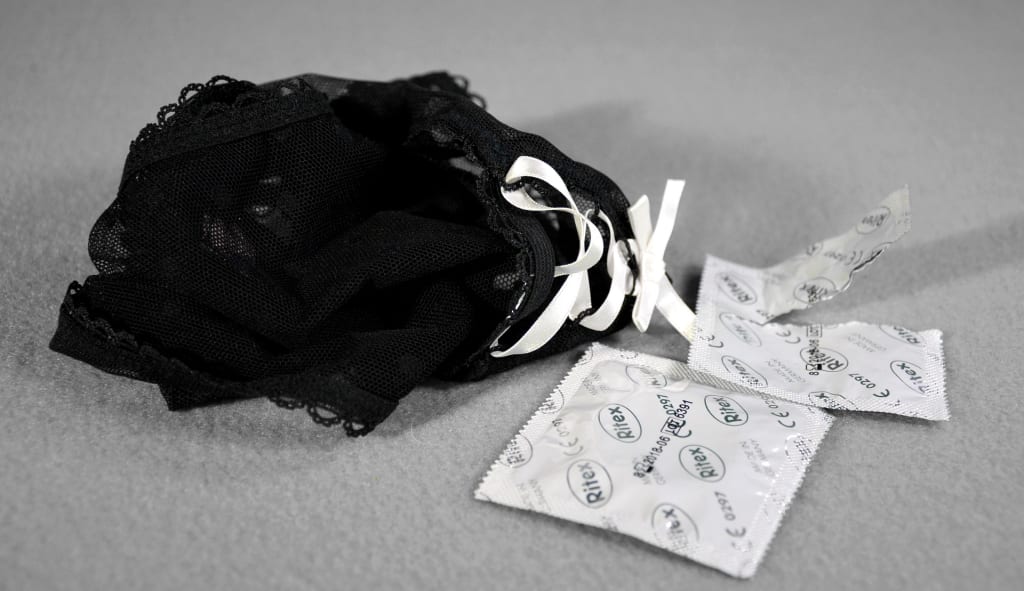Let's Talk About Sexual Partners
What is 'average' and why do we care?

How many sexual partners is average and why do we care?
Let's start off by looking at some statistics: The CDC (Centres for Disease Control and Prevention) surveyed men and women between the ages of 25 and 44 (considered 'sexually experienced') about the number of sexual partners they have had in a lifetime. The CDC defined sexual partner as someone they've had any sexual contact with: vaginally, orally, or anally.
The numbers between 2002 and 2015 seemed to remain pretty consistent:
2002 2006-2010 2011-2015
Men 6.7 6.0 6.1
Women 3.8 3.9 4.2
A couple of things to note: The first is that the survey relied on self-reported numbers, which are obviously subject to a number of biases (especially social). The second is that, as expected, men's responses were higher than women's.
This test also did not account for anyone under the age of 25, which (from what I've seen at University) could greatly skew the averages. The CDC did, however, conduct the same research using participants aged 15+ but they were looking at how many people in that age range have had more than 4 sexual partners in the last 12 months. These 1-year averages were as follows:
2002 2006-2010 2011-2015
Men 4.6% 3.9% 4%
Women 2.4% 1.8% 1.7%
Once again, we see that the women's numbers are significantly lower than the men's, and the percentage drops for both between 2002 and 2006. It's up to you to decide how reliable you think these figures are, but just to verify, as I type this I have my own sexual partners survey being circulated which you can take at the bottom of this article...
So, now that the statistics are out of the way, let's talk taboo. I'm sure we've all observed, at some point in our lives, men being praised for the number of sexual partners and women being degraded for the number of theirs. In fact, you hear those stories of fathers taking their sons to brothels to lose their virginity, but what's the stereotypical response when it comes to fathers and their daughters? Probably something along the lines of "don't touch her."
It seems as if from the beginning there's already this strong gender divide; release the boys and protect the girls. Of course, in neither theory or practise, would that work.
Why do people care?
There are two issues that need addressing here, one is more specific to sex, the other is a much larger problem. Firstly, it's okay to ask and be wary about how many sexual partners someone has had, quite simply, because the more partners someone has had, the more chance that they've come into contact with someone who has STDs.
However, a solution to asking how many partners is to simply ask whether they use protection and when the last time they were tested was. Another solution is to ensure that you get tested yourself. I have friends who get tested every month, regardless of how many people they have slept with. It's good practice and proper examinations can also help to detect early signs of larger problems, such as cervical, testicular, bowel, and urinary tract infections and cancers. Apart from this, there seems to be no other reason to ever ask how many sexual partners someone has had.
The wider problem: Sex is unfortunately still a taboo. Although shops like Ann Summers are bringing sex and sexual acceptance onto our high streets, we're still a long way from sexual freedom, sex free from judgement. I must admit, I was concerned when starting this blog as to whether it would affect my career prospects if any potential interviewers/employers saw it. It's still a concern of mine, but why should it be? Sex is a normal part of life, it's procreation and pleasure — why should we be afraid of pleasure?
Unfortunately, as the act of sex itself is still somewhat of a taboo, when you have many partners, words like 'whore' and 'slut' are tossed around freely and used to degrade. So what's the solution? Do we stop using these words or do we take the negative power away from them? What would happen if we began to use these words as descriptors rather than insults? Is calling a prostitute a whore insulting?
The impact of society and environment seem to be the driving factors in sex-shame and sex-shaming; babies are not born feeling ashamed. Like intolerance, shame is something that is taught — we can't help what turns us on and what makes us bored. If having multiple partners keeps sex exciting for you then don't be ashamed of it. In fact, being unashamed and able to discuss your sexual preferences is a large part of the whole social paradigm of sex.
One of the key parts of sex, is consent; if you can't discuss what you like with people then how will you ever give your informed consent? This extends to your number of sexual partners. If you do not wish to have a monogamous relationship, then don't be afraid to let people know; not only does it save awkward situations, but, hopefully, it'll avoid people getting hurt.
Overall, whether your figures are average, below or above, or whether you believe in the accuracy of the averages at all, the take away from this should be that any shame you feel over your partners is learned and, as such, it can be unlearned. Be willing to share, be open, and be receptive and tolerant and hopefully one day we'll just be pleased that people have found what works for them.
Please click this link to take the anonymous survey.
Current survey results (as of 16:00, 13/10/17)
60% of those surveyed claim to have had more than 9 sexual partners in their lifetime
Out of those 60%, over two-thirds claim to have had more than 25 sexual partners
The majority of respondents identify as female
The more sexual partners' respondents have had, the more likely they are to be comfortable with disclosing that number
100% of respondents believe that people are judged negatively on the number of sexual partners they have had.
*Results will be systematically updated.






Comments
There are no comments for this story
Be the first to respond and start the conversation.